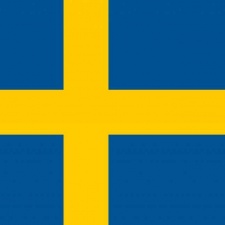The Swedish Games Industry has published a report examining the country’s gaming market.
In 2021 there were 785 games companies registered in Sweden, a 15 percent increase from 2020 (when there were 667) and a 56 percent increase from 2017. However, the majority of these companies are small, with 88.1 percent of companies having ten or fewer employees and generating $2 million or less, while 48.5 percent are solo companies earning a million dollars or less. This demonstrates that – despite the growth of the Swedish market and the fact that several companies are juggernauts within the industry – the vast majority of operations are independent organisations with substantially lower earnings.
These companies employed 7944 people, representing a 17 percent increase from 2020 (6596) and a 59 percent increase from 4670 in 2017.
6169 of these employees were men, representing 77.7 percent of the total, compared to 1755 female employees (22.1 percent). Despite this disparity, there is a clear increase in the number of women in the Swedish games industry compared to five years ago, which had just 849 female employees compared to 3821 men (18 percent versus 82 percent).
29 companies consisted of at least 50 percent female employees in 2021, compared to 22 in 2020. Additionally, 83 games companies in the country have an above average (22 percent) number of female employees.
Collectively, Swedish games companies contributed $2.7 billion to the country’s domestic economy and $5.8 billion to the global economy.
Embracer Group’s recent string of acquisitions is cited as a highlight for the Swedish industry, helping to boost the company’s profile within the country and on the global stage. These acquisitions include Middle-Earth Enterprises and Square Enix’s western properties, including Onoma (formerly Square Enix Montreal) and Crystal Dynamics.
King’s success is also noted, reporting sales of $550 million worldwide. Meanwhile, Mojang’s Minecraft remains the world’s bestselling game, with 240 million copies sold and 93 million monthly average users in 2021.
Stockholm, Sweden’s capital city, is the hub of the country’s gaming industry, with 333 companies and 4745 employees.
Several factors are cited as barriers for the Swedish gaming industry.
Covid-19 saw the industry experience a boom in terms of revenue but finding a so-called “new normal” during the pandemic caused the cancellation of several major events, delayed releases, and issues in the workplace as teams struggled to adapt to new working models. The ongoing war in Ukraine and rising inflation are also cited as significant obstacles for Swedish game makers.
In August, we listed King and Embracer Group as two of the world’s top 50 mobile game makers.

